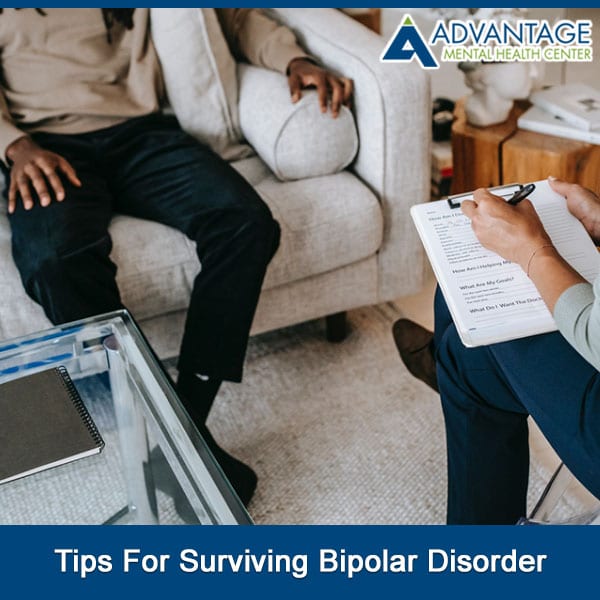People with bipolar disorder experience mood swings that range from depressive lows to manic highs. Unfortunately, nobody knows the exact cause of this disorder.
Treatment Modalities
When it comes to treating bipolar disorder a combination of medication and psychotherapy should be used as patients learn self-management skills. These skills are important as they teach the patient when they’re starting to “cycle” so that they can get preventive intervention.
This education should also teach patients about stress triggers – events or changes that bring about the cycles or contribute to them. These triggers could include lack of sleep, experiencing loss, and family conflict. It’s important for patients who have bipolar disorder to learn how to cope with these situations.
Patients also need to learn how to do mood charting – a means of keeping track of moods regularly. By taking the time to rate their mood, record their daily activities, and note how much sleep they’ve got patients will start to identify their triggers.
Psychotherapy should also address the acceptance of this disorder. This is important because a lot of people don’t take the diagnosis seriously. For instance, a lot of people will take their prescribed medication for a while before going off of it – something that’ll precipitate a relapse.
Psychotherapy Options
Three types of therapy have been shown to work for patients who have bipolar disorder. These include:
- Family-focused therapy involves the patient and their family. This is important because family dynamics affect mood conditions. This therapy not only educates the family about the disorder but also helps them learn communication and problem-solving skills.
- Interpersonal and (a.k.a. social rhythm) therapy helps patients learn how to regulate their sleep-wake cycles and regulate their daily routines.
- Cognitive-behavioral therapy helps patients restructure their pessimistic thinking and their overly optimistic, manic cognitions.
It is important to find a trustworthy provider who can monitor patients especially when it is time to try new medications.
Once patients can control their mood cycles they must work to reclaim their lives. Oftentimes they’ll discover that even though they’re no longer symptomatic they still have difficulties when it comes to holding a job or maintaining a relationship. This may be due to residual cognitive issues – problems with memory, concentration, attention, and vigilance. Additionally, after a manic episode, some patients experience mild or moderate depression. This can make it more difficult for them to function at the same level as before even though they’re no longer cycling.
If you suffer from bipolar disorder and need some help managing it, contact Advantage Mental Health Center in Tampa Bay and Clearwater, FL today.
Picture Credit: Pexels


